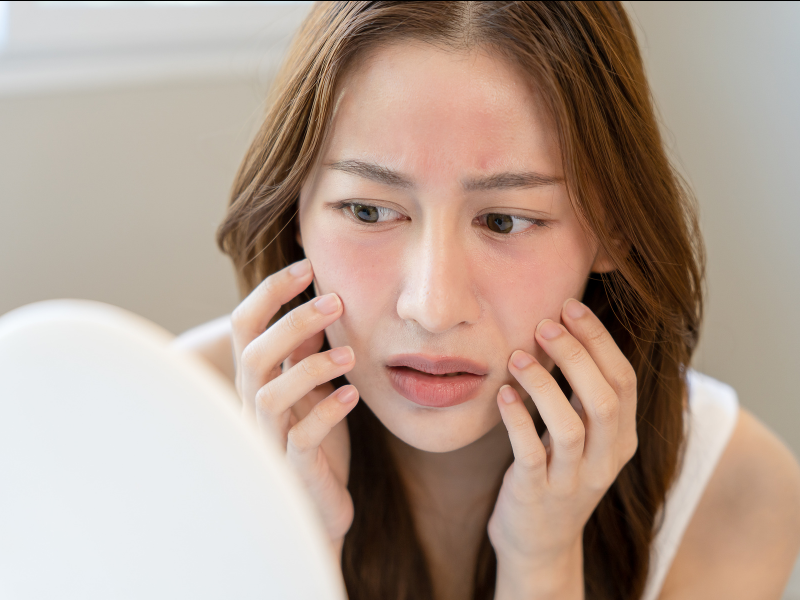
Is Your Skin Overreacting? Understanding Sensitivity and How to Soothe It
Does your skin flush easily, sting when you apply products, or react to changes in weather or stress? You might be dealing with sensitive skin—a condition that’s increasingly common, often misunderstood, and absolutely manageable with the right approach.
At The Treatment Centre, we often meet clients who feel their skin is “just reactive,” but there’s always a reason behind it. Here’s what’s really happening beneath the surface—and how to calm and support sensitive skin.
🔬 What Is Sensitive Skin?
Sensitive skin is not a skin type, but rather a condition. It means your skin has a lower threshold for irritation, and it can respond negatively to triggers that wouldn’t affect resilient skin.
This reactivity is often linked to a compromised skin barrier —the outermost layer of skin that protects against moisture loss, allergens, and irritants. When this barrier is weakened, the skin becomes more vulnerable to inflammation, dryness, and irritation.
🚨 Common Signs of Sensitivity
Redness or flushing
Burning or stinging sensation
Tightness or dryness
Flakiness or rough texture
Breakouts from minimal or gentle products
🧪 What Causes Sensitive Skin?
There are many factors that can lead to or worsen sensitivity, including:
Over-exfoliation or harsh products
Fragrance and alcohol in skincare
Environmental stressors (UV exposure, wind, cold)
Hormonal changes or stress
Underlying conditions like rosacea or eczema
Compromised barrier from active ingredients (like retinoids or acids)
🛡️ How to Soothe and Strengthen Sensitive Skin
1. Simplify Your Routine
2. Use Barrier-Supporting Ingredients
Look for:
Ceramides : Replace lost lipids and strengthen the skin barrier
Niacinamide : Calms inflammation and supports skin repair
Panthenol (Vitamin B5) : Hydrates and soothes
Squalane : Lightweight and non-irritating, supports moisture retention
3. Hydrate Deeply
4. Avoid Known Irritants
5. Be Gentle with Application
6. Treat with Professional Support
💡 Can You “Fix” Sensitive Skin?
🌟 Final Thoughts
If your skin constantly feels irritated or reactive, it’s a sign that your barrier needs support—not more stimulation. Understanding the root of your sensitivity is the first step toward healing. With the right approach, you can move from reactive to resilient and restore calm to your skin.
Ready for a personalised plan to soothe your skin? Book a skin health discovery session at The Treatment Centre and let us guide you back to balance.
